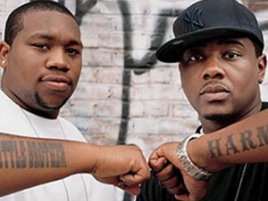Stand Up For Your Eternal Rights
By Krishna Dharma Das | Mar 06, 2011

In the wake of the recent furore in Egypt the Foreign Secretary William Hague did the diplomatic rounds of Arab nations. While there he made the usual Western calls for more human rights with some fine sounding rhetoric. “Freedom of assembly, the rule of law, freedom of speech, and free and fair elections – these are inalienable rights that are the building blocks of free and open societies.”
Well spoken sir. I guess we have all that here, although some may argue, and most of us would no doubt hold that it needs to be diffused more widely across the globe, particularly in some eastern quarters.
I think I would also have to agree that the Universal Declaration of Human Rights, based upon which such calls are made, could do with being a bit more universal. Especially when it comes for example to statements like the first article, “All human beings are born free and equal in dignity and rights. They are endowed with reason and conscience and should act towards one another in a spirit of brotherhood.”
A spirit of brotherhood has been notably absent from too many places in recent years. Unless it means the kind of brothers who like to knock hell out of each other.
Which brings us to the next article. “Everyone has the right to life, liberty and security of person.” Fair enough, but what exactly does that mean? Is it ever really achievable? Preservation of the body, even in those states where it is taken seriously, is never guaranteed. Our right to life is somewhat tenuous in this world with death our constant companion.
As for liberty, just what does that entail? We may be free to walk the streets and say our piece, and I for one am grateful for that, but are we liberated from the many miseries that afflict the body? We all face disease, anxiety, old age and all kinds of pain as we struggle to keep body and soul together. Okay, we have our health systems and hospitals and the like, but these are never going to eradicate the ills and tribulations of this life.
Our security of person is subject to powers over which we have very little control. We want to peacefully get on with life and suddenly civil war erupts around us, or maybe a neighbouring state or different ethnic group decides it is time we ceased to exist, and we are plunged into a living nightmare. Or perhaps an earthquake, tsunami or typhoon suddenly rears it awful head. Or a loved one dies, or maybe just good old cancer gets its malignant grip on us. We are surrounded by dark possibilities.
Hence we are forever plagued by anxiety – ‘what will happen?’ The Vedas say this is rooted in the fact that we are eternal beings in a temporary world. Everything is always changing and under threat. The very fact that we need a declaration of rights demonstrates that they are not assured; we have to fight for them. That may just be by going out to work every day to achieve some kind of secure existence, or it might mean a whole lot more, but without some kind of endeavour we will soon lose everything. But despite whatever we may attempt, lose it we must, sooner or later.
Unless that is, we discover the real meaning of our human rights. All of us have the intrinsic right to eternal life, freedom from death and suffering, and the everlasting security of Krishna’s loving shelter. This has been declared by Krishna himself in the Bhagavad-gita. “The living being in this world is my eternal servant, a part of me. Only due to illusion does he struggle in material existence.”
Really our demand for rights is about happiness. We don’t want anyone to impinge upon our ability to enjoy life. But the most serious impingement arises from our own ignorance, from not knowing who we really are, where we belong and how to get there. Even if we do finally succeed in establishing the ideal of fairness and universal rights throughout the world, it is still not our real home and as long as we remain here we will be obliged to undergo constant agonies of one sort or another.
We therefore have to strive for actual liberation, which means freedom from material bondage, or in other words illusion. The pains of this world are no more real than those seen in a dream. Everyone has the right to realise this truth and the right to be established in undying happiness. That is freedom.
Until we achieve pure transcendental consciousness, no longer identifying with the temporary body and all its attachments, we are not free. And that consciousness means reaching the Supreme Lord Krishna, as he declares in the Gita. “One who attains my immortal abode never again experiences suffering.”
Perhaps someone should tell Mr Hague.















